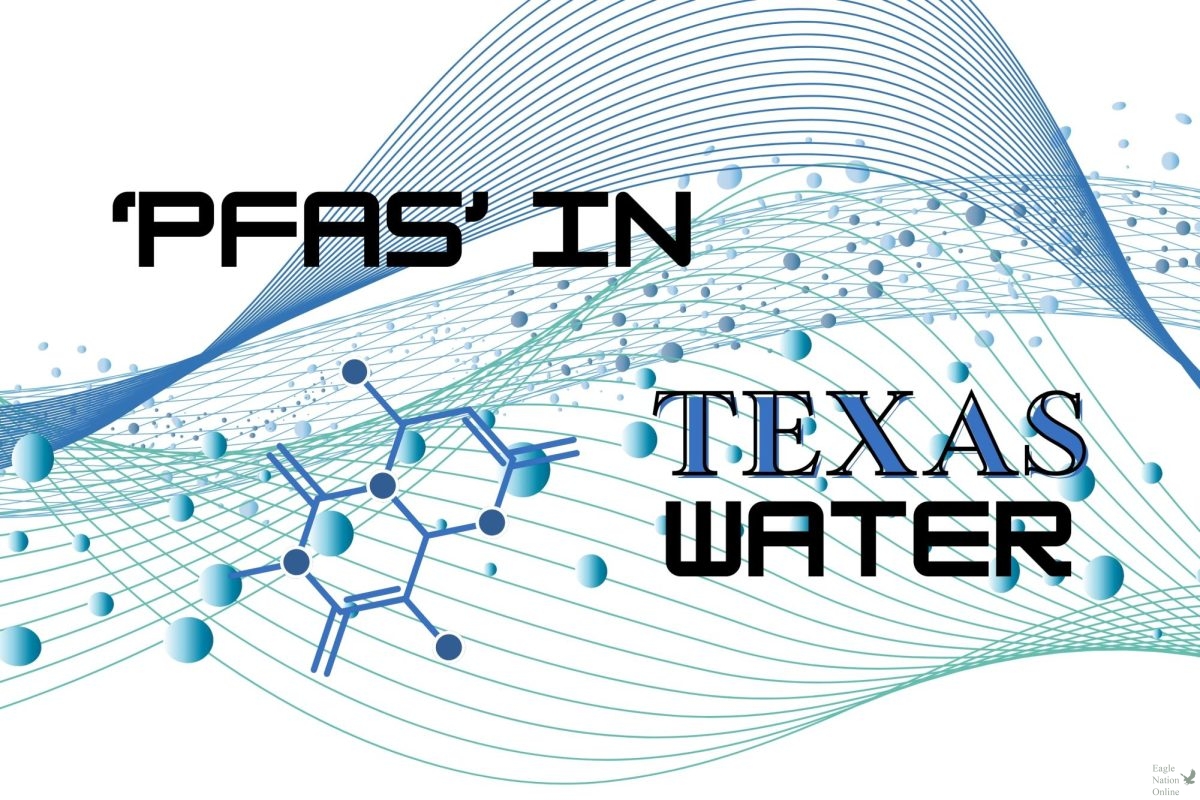This month, the Environmental Protection Agency released new regulations on per/polyflourinated alkylated substances also known as “forever chemicals” under the Biden-Harris Administration’s National Primary Drinking Water Regulation for six kinds of PFAS, and the Prosper Custer Pump Station made the list of cities with levels exceeding the revised limits.
“Forever chemicals,” or PFAS, are a group of chemicals used to make non-stick items such as pans and packaging, stain-resistant and water-resistant fabrics such as raincoats and carpets, and a variety of cleaning products. These chemicals get their nickname because they are extremely persistent, staying in the environment for thousands of years. PFAS have also been found to exist in the blood of 97 percent of Americans.
According to the CDC, health risks associated with exposure to PFAS include increases in cholesterol levels, changes in liver enzymes, decreases in infant birth weight, kidney cancer and lower antibody responses to some vaccines. In Texas, the new standards for PFAS are 4 parts per trillion. For reference, drinking water should not have anything above 70 parts per trillion or it could cause the health risks listed above.
These are the first-ever standards on “forever chemicals,” and the EPA requires states to meet these standards within the next five years. So far, as Texas tests its water systems, nearly 50 of them have PFAS levels above the new standards. The EPA estimates these new regulations will reduce exposure for nearly 100 million people across the country. This can help prevent many of the health implications of exposure to PFAS including cancer.
As listed by the Texas Tribune, here are some of the water systems with PFAS levels exceeding EPA limits:
Abilene Northeast and Grimes Water Treatment Plant
Town of Anthony
Arlington Pierce Burch Water Treatment Plant
Baytown Area Water Authority
Big Springs Water Plant
Clear Lake Water Authority
Childress Water Plant
Cockrell Hill Water Plant
Coupland: Manville Water Supply Corporation
Dallas Water Utility Eula Water Supply Cooperation in Clyde
Deer Park Surface Water Treatment Plant
Duncanville Water Treatment Plant
Edinburg Wastewater Plant
City of Farmers Branch
Town of Flower Mound Wastewater Treatment
Fort Bend County Municipal Utility District No. 133
Fort Bend County Municipal Utility District No. 41
Fort Worth North and South Holly Water Treatment Plant
Gastonia Scurry Special Utility District
Georgetown San Gabriel Park Water Treatment Plant
Grapevine Water Treatment Plant
Greenville Water Treatment Plant
Haltom City
Harris County Municipal Utility District No. 119
Harris County Municipal Utility District No. 8
Houston: Spencer Road Public Utility District
Hudson Oaks Lakeshore Plant
Huntsville Palm Street Water Plant
Irving MacArthur Pump Station
Katy: Big Oaks Municipal Utility District
Killeen: West Bell County Water Supply
La Feria Water Treatment Plant
City of Lake Worth
City of Livingston
Midland Water Purification Plant
Prosper Custer Pump Station
Port Lavaca Guadalupe-Blanco River Authority Water Treatment Plant
San Antonio Water System Castle Hills
City of Seagoville
Seguin: Springs Hill Water Supply Corporation
Temple Water Treatment Plant
Terrell North Texas Municipal Water District
City of Tye
Weatherford Water Treatment Plant
West University Place Plant
How can you reduce your exposure to PFAS in your daily life? You can reduce the amount of microwaved food, fast food and takeout that you consume regularly. You can also avoid using non-stick cookware, such as pans and vacuums, and rather clean up dust in your home.


















